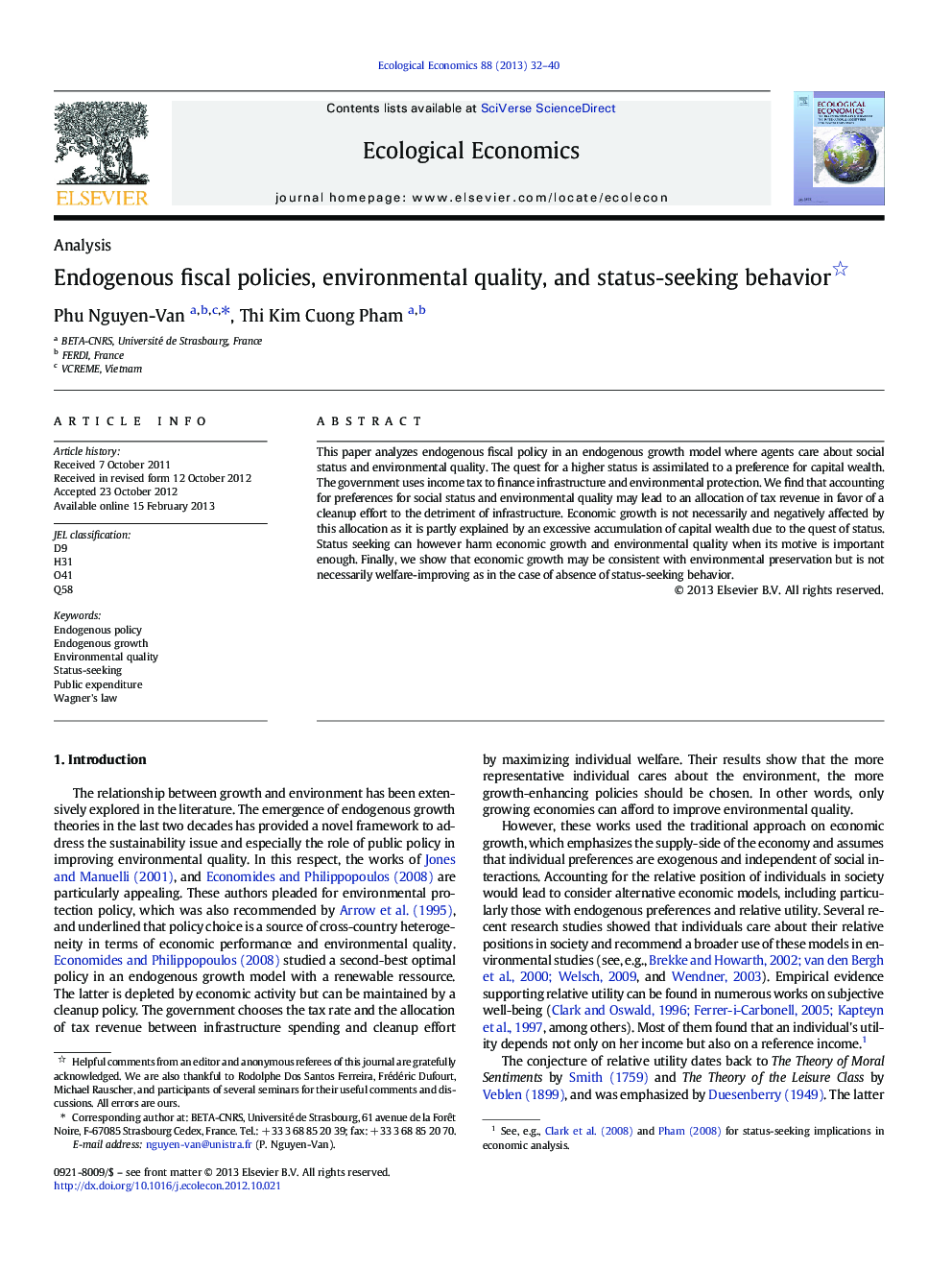| Article ID | Journal | Published Year | Pages | File Type |
|---|---|---|---|---|
| 5050152 | Ecological Economics | 2013 | 9 Pages |
This paper analyzes endogenous fiscal policy in an endogenous growth model where agents care about social status and environmental quality. The quest for a higher status is assimilated to a preference for capital wealth. The government uses income tax to finance infrastructure and environmental protection. We find that accounting for preferences for social status and environmental quality may lead to an allocation of tax revenue in favor of a cleanup effort to the detriment of infrastructure. Economic growth is not necessarily and negatively affected by this allocation as it is partly explained by an excessive accumulation of capital wealth due to the quest of status. Status seeking can however harm economic growth and environmental quality when its motive is important enough. Finally, we show that economic growth may be consistent with environmental preservation but is not necessarily welfare-improving as in the case of absence of status-seeking behavior.
⺠Accounting for social status may lead to a tax allocation in favor of a cleanup effort to the detriment of infrastructure. ⺠High motivation for social status can harm economic growth and environmental quality. ⺠Growth can be environmental friendly but does not necessarily improve welfare as in the case of absence of social status.
